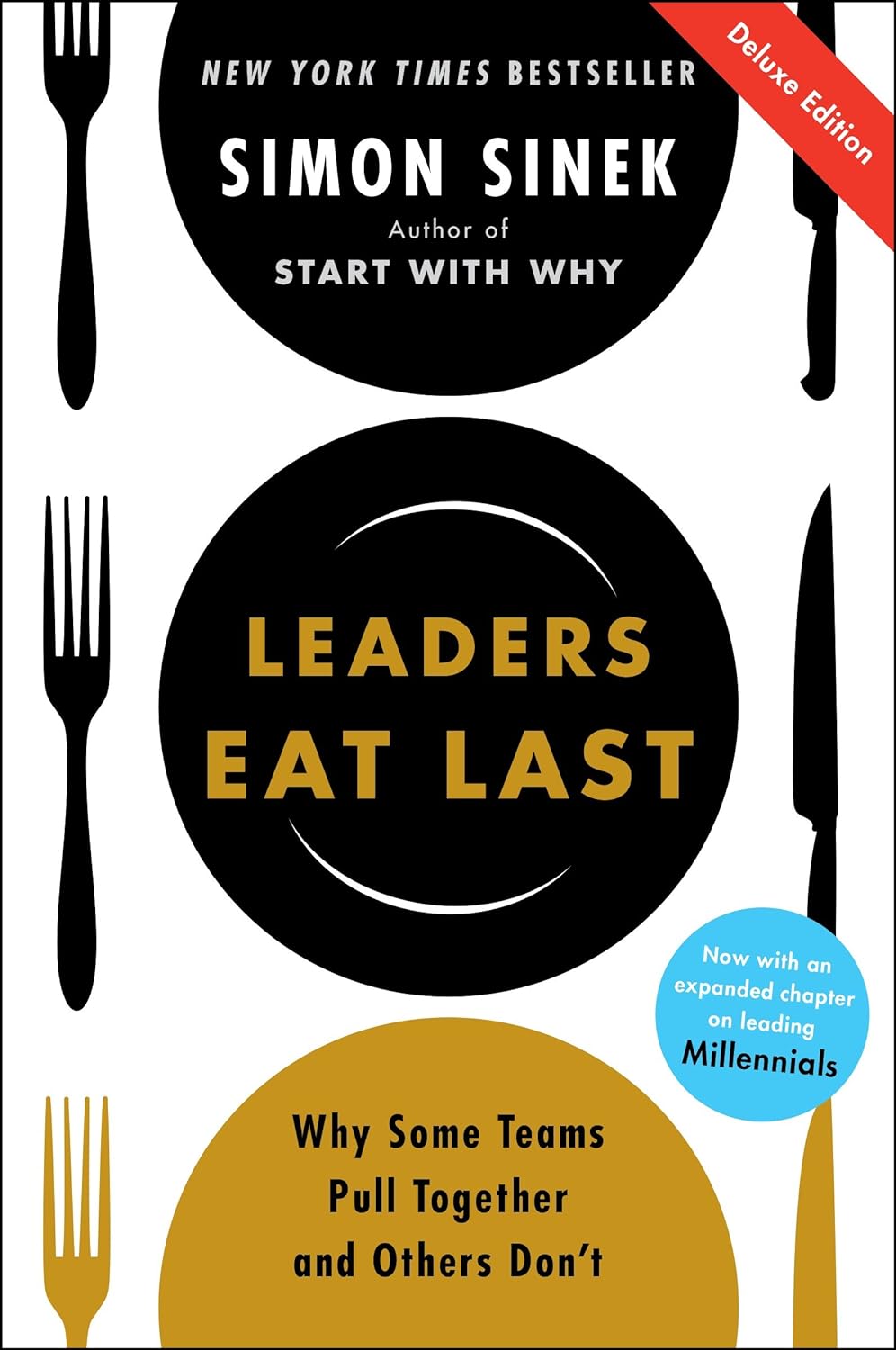
Leaders Eat Last
Simon Sinek’s “Leaders Eat Last” is about how good leaders prioritize the well-being of their team. He uses the metaphor of a tribe, where leaders historically made sure everyone got fed before they did. This idea applies to today’s workplaces, where great leaders create a safe and supportive environment, looking out for their team’s needs first. It’s not just about giving orders but fostering a sense of trust and loyalty that boosts productivity and morale.
Here are the key takeaways from Simon Sinek’s “Leaders Eat Last”:
- Create a Circle of Safety: Leaders should prioritize creating a safe and trusting environment where team members feel secure and supported.
- Serve Others: True leadership involves serving the needs of others, ensuring their well-being and growth come first.
- Build Trust: Trust is foundational. Leaders who build trust foster stronger relationships and higher performance.
- Embrace Empathy: Understand and care about the personal challenges and aspirations of your team members.
- Lead with Integrity: Act consistently with your values and principles, setting a positive example for others.
- Encourage Growth: Foster an environment where individuals can develop and contribute their best talents.
- Promote a Sense of Belonging: Cultivate a culture where everyone feels valued and included, enhancing collaboration and morale.
- Focus on the Long Term: Successful leadership looks beyond short-term gains to sustainably achieve goals and create lasting impact.
These principles emphasize the importance of putting people first and nurturing a supportive workplace culture for long-term success.
(summary created with the help of AI)
I picked this book because I was promoted into a leadership role and I wanted to read as many leadership books as I could to help me develop my ‘style’ of leadership. I understand that there will be trial and error – especially with some of the against the grain recommendations Sinek makes in this book. I’m actually a pretty big fan of his – his TED talk ‘start with why’ really resonated with me and helped me pivot my career so I was excited to take on some of his books to see if he had any other insights I could leverage.
The ideas of this book are pretty simple – treat your employees like people – not resources on a spreadsheet. That intrinsic motivation will generate better results that authoritarian management. This resonated with me as I’ve had great managers and really BAD managers in my career so I was determined that if I ever led people I would strive to be a great manager. I’m just starting out but applying some of these methods has resulted in amazing productivity and my staff seems very happy to work on my team.
There’s a few more of Sinek’s books that I want to work through – but this is a good start and I heartily recommend it to anyone looking to up their management skills.